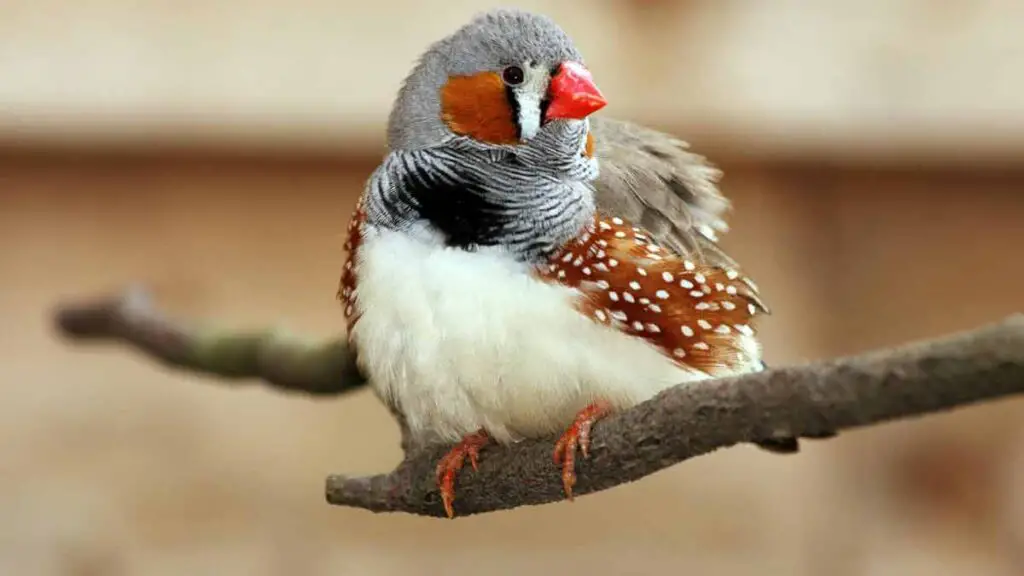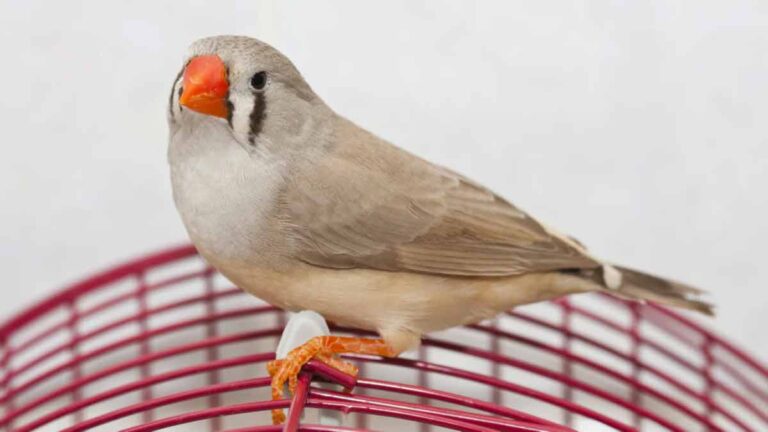Finches are small, delicate birds that rely on their wings for survival. Some finch owners have noticed that their pet bird doesn’t seem to be able to fly, leaving them wondering: Why Can’t My Finch Fly?
If your finch can’t fly, there could be a few reasons. For example, if the bird is suffering from a vitamin A deficiency, this could lead to developmental problems and make it unable to fly. Additionally, some clinical diseases that finches can contract can lead to an inability to fly.
Thus, if you believe that your pet finch cannot fly because of an injury or illness, it is best to take it to see an avian veterinarian.
Keep reading if you want an in-depth explanation of why your finch might not be able to fly and what you can do about it!
Reasons Why Your Finch Can’t Fly
If you have a pet finch, you may have noticed that it doesn’t seem to fly as much as other birds.
The following are some reasons why your finch cannot fly:
- Sickness or injury: Your finch may not be able to fly if it is injured or sick. For example, if the bird is suffering from a vitamin A deficiency, this could lead to developmental problems and make it unable to fly.
Additionally, if your finch gets injured, it can affect its ability to fly. For example, if your finch seems sick or injured, take it to a veterinarian as soon as possible.
- Molting: During molting, birds lose their feathers and grow new ones. It can take a few weeks, and the bird may not be able to fly during this time. Therefore, if your finch is molting, give it time, and it should eventually be able to fly again.
- Age: Older birds may not be able to fly as well as they used to. If your finch is getting older, it may not be able to fly as much.
- Lack of exercise: If your finch doesn’t get enough exercise, it could lead to a loss of muscle mass and make it harder for the bird to fly.
Make sure to give your finch plenty of time out of its cage to fly around and exercise. You should also ensure your finch has plenty of room in its cage so it can fly and stretch its wings.
If you think your finch cannot fly because of one of the reasons above, talk to a veterinarian. They can help you figure out what is wrong and how to help your finch.
Can You Take Finches Out Of Their Cage?
Can All Finches Fly?
Yes, all finches can fly. Instead, they use their wings to propel themselves through the air and navigate their way around. Some species, such as the American Goldfinch, are better fliers than others, but all Finches are capable of flying if they need to.
When Can A Finch Fly?
A finch can fly when it is around three to six weeks old. The exact time will vary depending on the specific finch species, but generally, young birds are ready to take to the skies once they reach this age.
Before they start flying, finches spend a lot of time perching and hopping around as they practice their new skills. Once they’ve perfected their technique, they’ll be able to fly like adults.
Why Is My Finch All Puffed Up?
The following are some possible reasons why your finch is all puffed up:
Cold
Cold is one of the biggest reasons why finches puff up. To keep warm, birds will fluff up their feathers to create insulation.
The feathers act as thermal insulators, trapping warm air generated by the body, thus keeping them warm.
Heat
Finches can also puff up their feathers to help regulate their body temperature in hot weather.
Birds can adapt to the changes in temperature to a certain extent, but extreme heat or warmer conditions can be stressful for them. So, they fluff up and spread their wings to catch a cool breeze.
Sickness
If your finch is puffed up, even when the room temperature is average (between 65°F and 70°F), it may be sick.
When sick, birds often puff up their feathers to conserve heat. You must seek medical attention if your finch seems lethargic and puffed up most of the day.
Attract a Mate
Not only humans but almost all species on this planet seek to impress; birds are not an exception.
When A finch wants to attract a mate, it will puff up its feathers to make itself more visible and attractive when confronted by a member of the opposite sex.
It is a way for them to show off how healthy and robust they are and grab the attention of their desired opposite gender. The more extensive and impressive the feathers, the more likely the bird will find a mate.
Relax
Finches may also puff up their feathers if they are relaxed and comfortable. It helps them to keep warm throughout the night and helps them sleep peacefully. It is perfectly normal behavior and nothing to worry about it.
Discomfort or Upset
Pet finches may also puff up their feathers if they are uncomfortable or upset about something. For example, if a bird is in a new environment or around new people, it may feel threatened and want to make itself appear bigger to look more intimidating. You need to pay attention in that situation since they may need your assistance.
So, if your finch is all puffed up and you’re not sure why it is, observe the bird’s behavior and see if you can determine the cause.
If you notice that your finch bird seems sick or distressed, it’s always best to take a finch bird to a veterinarian.
Other than that, there’s nothing to worry about if your finch is all puffed up. It is probably just trying to stay warm or cool, depending on the temperature.

Do Finches Recognize Their Owners?
Yes, finches recognize their owners. Like us (humans), finches can recognize faces and identify the vocals of their cage mates and people living in the house. Even though they hate being handled, they respond to their owner’s calls with happy chirps, tweets, and peeps.
Final Words
I hope this article helped you understand why your finch can’t fly and what you can do to support it.
We also discussed the reasons why finches puff up their feathers. If your finch seems sick, take it to the vet as soon as possible.
To keep your pet finch healthy, you should provide ideal conditions and nutritious food and encourage it to play and get plenty of exercise.
As a pet owner, you must be alert and notice any signs of sickness or indifferent behavior in your pet finches.
If you still have questions or concerns, please consult your veterinarian or an avian specialist. They will be able to help you better understand the reasons and come up with a solution.

